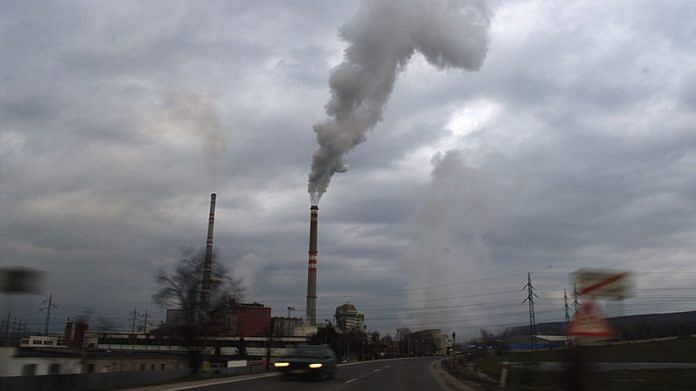High levels of air pollution may be putting lives at risk in more ways than one.
It’s already well known for causing more deaths than smoking. But now a team from Colorado State University have found that particulates – tiny particles of soot – and ozone play a crucial role in increasing aggressive and violent behaviour at levels of pollution below current safety guidelines. They said the effects were worse when temperatures were low.
By comparing Federal Bureau of Investigation (FBI) crime statistics with an eight-year study of air quality in the United States, the team found a link between the concentration of pollutants and the prevalence of offences, such as aggravated assault and abusive behaviour.

A 10 microgram-per-cubic-meter increase in daily exposure to particulates was found to correlate to a 1.4% increase in violent crimes. The team also found that a 0.01 parts-per-million increase in exposure to ozone was associated with a 1.15% increase in assaults.
The researchers calculated that a 10% reduction in particulate levels could save $1.4 billion in crime costs per year, a “previously overlooked cost associated with pollution”.

Stressed out
Last year, researchers at the London School of Economics suggested the connection between air pollution and crime may be due to increases in the stress hormone cortisol that can occur in people exposed to higher levels of pollution.
International quality standards categorise an Air Quality Index (AQI) score of less than 50 as “good”. But the LSE team found that an AQI score of above 35 leads to 2.8% more crimes. In London, pollution levels regularly exceed that level on one out of every four days.
“The effect of air pollution on crime occurs at levels which are well below current regulatory standards in the UK and the US which suggests that it could be beneficial to lower these existing guidelines,” said Dr. Sefi Roth, co-author of the research.
Breaking bad
Another study published last year found a link between air pollution and unethical behaviour. “Air pollution not only corrupts people’s health, but also can contaminate their morality,” the report said.
Air pollution may be particularly harmful to adolescents, according to a study by a team at the University of Southern California that found a correlation between aggressive and antisocial behaviour among teenagers and high levels of particulates in the atmosphere.
In Shanghai, researchers at Fudan University, established a link between high levels of air pollution and mental health. Using health insurance data, they showed that hospital admissions for mental disorders increased in line with an uptick in sulphur dioxide pollution.
Evidence of the positive benefits of cutting air pollution was provided over a decade ago by research that showed that removing lead from petrol in the US had been responsible for a 56% decline in violent crime.
Also read: Band-Aids on stubble burning pollution won’t do. India must tackle it as food security issue
This article was originally published in The World Economic Forum



